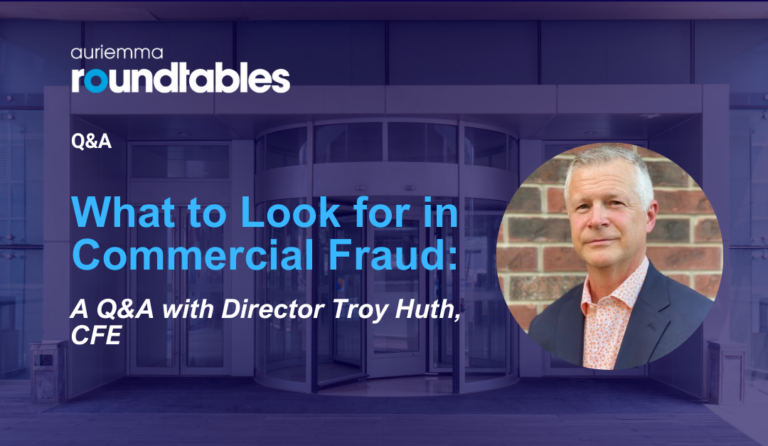May 6, 2025
The Talent Crisis
Introduction
Over a decade ago, we started discussing the talent gap we would face when the Boomers began retiring. We didn’t expect Boomers to retire much later than anticipated, leading to the talent crisis. This left Gen X, an already smaller generation, frustrated, and many sought alternative careers versus waiting for an executive position.
Now, we have a multigenerational workforce with different wants and needs, and there are not enough tenured employees to share their years of technical knowledge.
Recent roundtable discussions have focused on hiring and retaining claims talent, but different generations want different things. One thing that crosses different generations is that everyone wants to feel valued, included, and part of something bigger than themselves.
As an industry, we don’t promote what an amazing career you can have in claims. Most of GenX associate our industry only with insurance agents they see on television commercials and online insurers that only sell auto and homeowners insurance.
Furthermore, many lack understanding and exposure to the industry because their parents have traditionally managed their insurance needs.
In short, most GenX people “Don’t know what they don’t know” about the career opportunities available in the insurance industry.
This article presents insights from Roundtable discussions with claim executives regarding the challenges in hiring and retaining talent and their actions to address these issues.
To Attract Talent, Promote, Promote, Promote
Like creating brand awareness with customers, you must promote why your company is a great workplace. Most companies rely on reputation, but as the world has changed, so have hiring best practices.
You will have difficulty attracting top talent if you are years behind in technology, compensation, and innovation. More than ever, people have invested in their education and career development. They want companies to recognize this and continue to invest in them.
Technology can attract new talent to the insurance industry by demonstrating its use of AI, data analytics, and digital marketing to engage with younger individuals.
We also need to clear up the common misperceptions about the insurance industry and promote the generational opportunity to get the incoming workforce fired up about careers in insurance. At the very least, we should work to dismantle the notion that insurance is a “tough” industry to break into.
Have a clear technical and management career path
Clearly defining various technical roles with corresponding skill requirements, experience levels, and potential career progression will establish a transparent technical career path for entry-level employees.
Defining these roles involves outlining the steps from junior positions to more senior roles like specialized engineers or architects, detailing the necessary certifications, training programs (both internal and external), and mentorship opportunities available at each stage.
Creating a clear management career path for entry-level employees by delineating progressive leadership roles with increasing responsibilities, outlining required competencies such as communication, team leadership, and strategic thinking for each level.
This framework should incorporate structured training programs focused on developing these management skills, coupled with mentorship from experienced leaders and opportunities for leading projects or small teams early on.
By defining clear technical and management career paths, new employees will better understand the growth and long-term career opportunities the industry offers.
Offer other investments such as industry training vs. salary increase alone
Most organizations offer tuition reimbursement for employees who wish to pursue advanced degrees or designations. This investment in education enhances employees’ skills and signals the company’s commitment to their professional growth.
In addition to tuition reimbursement, GenX employees often seek opportunities to obtain industry-specific certifications that can boost their expertise and career prospects. For example, certifications in popular business analytics tools such as Microsoft Power BI, Tableau, and Google Data Analytics are highly sought after.
Offer cross-departmental training
Offering cross-departmental training can also be beneficial. By allowing employees to gain insights and skills from various departments, even if they choose a different career path, they can see the diverse opportunities within the organization.
Cross-department training encourages continuous learning and adaptability, creating a more unified and cooperative work environment.
Multigenerational Workforce Requires Different Leadership Skills

A multigenerational workforce requires different leadership skills.
A multigenerational workforce in the insurance industry brings together a wealth of diverse experiences, skills, and perspectives. To effectively lead such a team, several key leadership skills are essential.
Adaptable Communication
Recognize that Baby Boomers, Gen X, Millennials, and Gen Z often have different communication styles and preferred channels. Some may favor face-to-face meetings or phone calls, while others prefer email, instant messaging, or video conferencing.
Like many sectors, the insurance industry utilizes various acronyms and specialized terminology. Younger generations may find it challenging to navigate the field. Clear and concise communication is key. Also, avoiding jargon or complex language can help include all age groups.
Flexibility and Adaptability
Different generations may have varying preferences regarding work-life balance, work arrangements (remote, hybrid, in-office), and career progression. Be open to flexible policies where possible.
This is also an opportunity for us to learn from younger generations about new technologies and innovative methodologies while recognizing and appreciating older generations’ experience and institutional knowledge.
Coaching and Mentoring
Encourage traditional and reverse mentoring opportunities where experienced employees guide newer ones, and younger employees share their tech skills with older colleagues. This fosters mutual learning and bridges generational gaps.
How do you speed up the technical path in claims?

How do you speed up the technical path in claims to address the talent crisis in the insurance industry?
With nearly 400,000 insurance professionals retiring soon, there are not enough GenX to fill all the leadership positions. The sky is the limit as individuals are getting promoted to management faster than ever.
The challenge is that most have not had enough years learning the technical aspect of claims. What strategies can be employed to accelerate the learning process and ensure it is conducive to effective learning?
Provide a Continual Learning Experience
Claims have been and always will be a continual learning experience. No two claims are the same. Conducting post-mortem analyses of settled claims with your team for educational purposes will allow team members to learn from each other’s experiences and identify areas for improvement.
Additionally, implementing regular training sessions focused on the technical aspects of claims processing can help accelerate the learning curve.
Cross-train, even and especially with management
Working remotely 100% of the time can reduce the chances for face-to-face interactions with mentors, including lunchtime meetings or social gatherings. Online meetings don’t quite present the same opportunity as spending time with mentors and senior management over lunch to discuss their career aspirations or how to overcome challenges in their current position.
One option is to communicate the benefits of having a hybrid approach of working remotely and on-site.
Position cross-training on-site, especially with involvement by management, as a unique opportunity to learn the details of how your organization handles claims and to have direct exposure with senior management.
Encourage joining industry organizations to learn from peers and foster collaboration in the industry
Joining and participating in industry organizations is another opportunity for GenX to gain valuable experience and knowledge and develop relationships with peers.
Industry conferences can also offer great opportunities for younger employees to gain industry exposure. Involving these employees in the preparation and, in some cases, participating in speaking at an event or on a panel can be an excellent learning experience.
Lessons Learned
Many claim leaders participating in a roundtable discussion have stated that talent remains one of their top three challenges. They have collectively agreed that gummy bears and free lunch don’t attract or keep top talent.
Like creating brand awareness with customers, you must promote why your company is a great workplace. Most companies rely on reputation, but as the world has changed, so have hiring best practices.
A multigenerational workforce in the insurance industry brings together a wealth of diverse experiences, skills, and perspectives. To effectively lead such a team, several key leadership skills are essential, such as:
- Adaptable Communication
- Flexibility and Adaptability
- Coaching and Mentoring
Work with HR to create a clear career path for technical and management paths by:
- Employing strategies to accelerate the learning process and ensure it is conducive to effective learning
- Provide a Continual Learning Experience
- Cross-train, even and especially with management
- Encourage joining industry organizations to learn from peers and foster collaboration in the industry
The bottom line is it’s time for us to clear up the common misperceptions about the insurance industry and promote the generational opportunity to get the incoming workforce fired up about careers in insurance.
To learn more about how Auriemma Roundtables for P&C Claims members discuss this and other topics of shared interest with their peers, visit our Insurance Groups website page.



